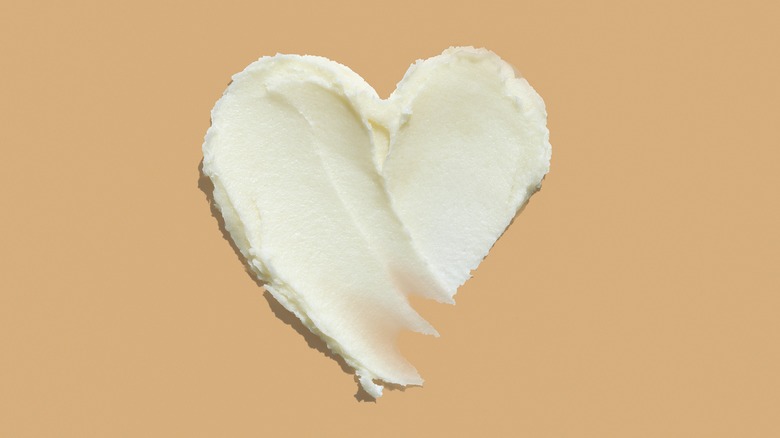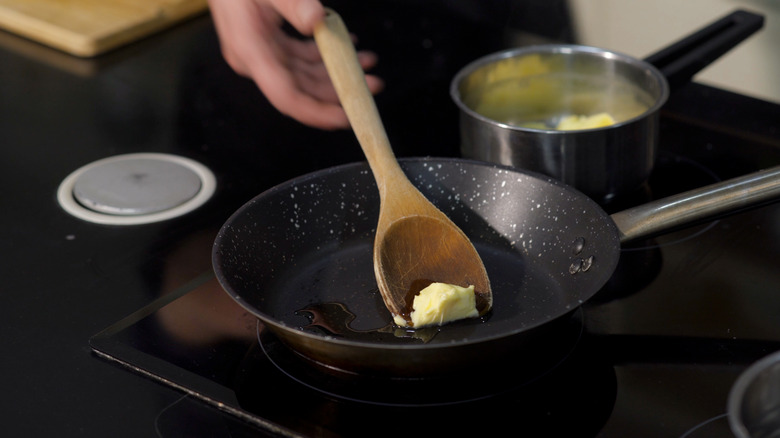Butter Was Once Used For Medicinal Purposes
While slathering butter onto a warm piece of toast, ancient health remedies may be the last topic on your mind. Though the first batch of butter was something of a haphazard creation — a traveling nomad found that the milk he packed in a sheepskin bag had turned into a solidified substance after a long day covering land on horseback — the product has since remained an important culinary ingredient. Yet butter hasn't always been used for purposes strictly related to gastronomy.
Since antiquity, butter has been incorporated into health regimens and used by healers to help alleviate problematic symptoms. Sick and achy Romans turned to spoonfuls of butter for relief, and the dairy product was used not only as a flavorful companion for warm breads but also as a health cure. Before you think about digging into your fanciest butters in hopes of improving your health, however, you'll want to think carefully about the ailment you're looking to heal.
A health-boosting ingredient
While long demonized for its saturated fat content and impact on cholesterol levels, butter has also offered a long list of health benefits, including delivering vitamins and minerals that support overall health; packing antioxidants to combat aging; boosting immunity; and fighting against cancer, tumors, and even rotten teeth. Yet long before we realized butter can, in fact, be beneficial to health, the Romans ate butter to soothe sore throats and layered the stuff onto problematic, painful joints for soothing relief.
To this day, ghee remains an Ayurvedic remedy for the relief of achy and painful joints. The creamy substance is both applied externally and ingested for its health-supporting properties. In addition to its nutritional content, ghee can help alleviate muscle soreness and improve the circulation of blood when massaged onto skin. As for sore throats? Clarified butter, in addition to being an anti-inflammatory ingredient, delivers antibacterial agents and can help lubricate dry, scratchy throats. The Romans were certainly onto something.

